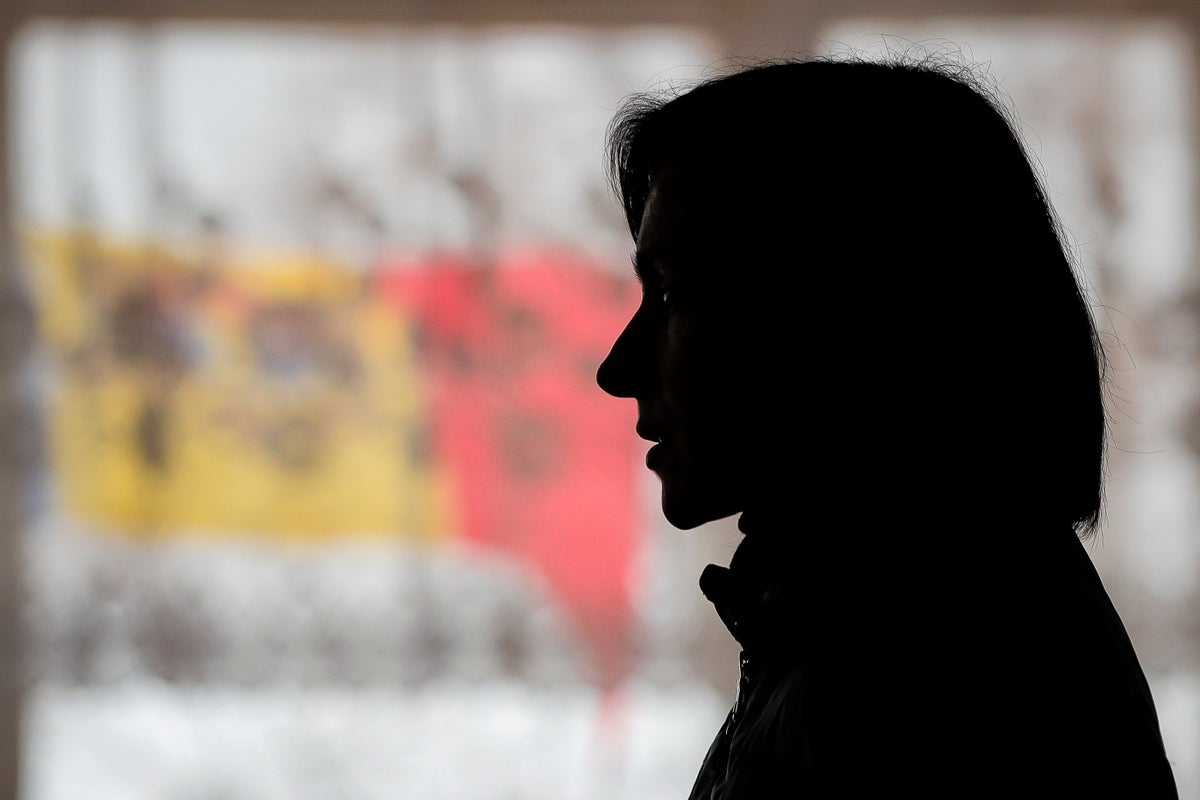
President Maia Sandu of Moldova pledged Tuesday to keep her country on a pro-Western course and as a firm supporter of Ukraine despite struggling under pressure of what she called Russia’s energy and political “blackmail.”
“I want everyone to know that Moldova choses to be free and continue on its European path no matter what the circumstances,” Sandu told Romania's Parliament while visiting the European Union member country.
“We are willing to pay the price of our freedom,” she added.
Moldova is entirely dependent on Russia for its natural gas. As Sandu addressed Romanian lawmakers, the country's breakaway Trans-Dniester region stopped supplying the rest of Moldova with electricity.
The Moscow-backed separatist region is home to Moldova’s largest gas-operated power station, which supplies about 70% of the country’s electricity needs.
The power supply interruption followed a Monday announcement from Moldova’s infrastructure minister, Andrei Spinu, that the state power company, Energocom, had failed to sign a November contract with the plant due to a 40% cut in deliveries of Russian natural gas.
Spinu said Russian gas giant Gazprom agreed to supply Moldova with 5.7 million cubic meters of gas per day, just 51% of what the country needs to provide electricity for its 2.6 million people.
Russia has used impoverished Moldova’s dependence on its gas to pressure the country over its alignment with the West, including the condemnation of the war in Ukraine. Household energy tariffs have gone up six-fold in the last year.
Gazprom has repeatedly threatened to cut off the former Soviet republic’s pipelines altogether. Moldova became a candidate for European Union membership in June, at the same time as neighboring Ukraine did.
“Providing electricity for the country is a daily challenge. ... Moldovan families now spend about 75% of their income on energy,” Sandu told Romanian lawmakers. ’’We risk being without gas and electricity during the coming winter.”
Sandu also accused pro-Russia political forces in Moldova of “cynically exploiting people’s hardships and the discontent ... (to) generate chaos and turn us back from our European path.”
She cited over 20 Moldovan and Russian individuals and entities sanctioned by the U.S. last week for assisting Russian efforts to manipulate Moldova’s politics.
The group included Ilan Shor, an Israel-based Moldovan oligarch and the leader of the populist Shor Party. His supporters staged days-long protests in Moldova's capital last month chanting slogans against the government’s pro-Western policies and carrying banners with slogans such as “No to Cold War, no to cold winter.”
The State Department said Shor was working with “corrupt oligarchs and Moscow-based entities to create political unrest in Moldova” and to undermine the country’s efforts to join the European Union.
Sandu similarly accused “corrupt” political actors in Moldova of pushing for Russia's interests while the violence from the Kremlin's war in Ukraine spills into their country.
On Monday, a Russian missile landed in a Moldovan border city when Ukrainian forces shot it down. Residents of Naslavcea said they were shaken by the explosion, which caused damage but no casualties.
“We were scared, I did not know what to do or where to go," resident Yelena Shakrai said.
Russia has previously fired missiles over Moldova into Ukraine, but Monday's incident was the first of its kind. The Moldovan Foreign Ministry responded by expelling a Russian Embassy employee from its territory.
“We are all in danger, as there are no rules or limits for Russia. ... We need help to survive as a part of the free world,” Sandu said.
___
Vadim Ghirda in Bucharest, Romania and Cristian Jardan in Chisinau, Moldova, contributed to this report.
____
Follow AP's coverage of the war in Ukraine at https://apnews.com/hub/russia-ukraine







